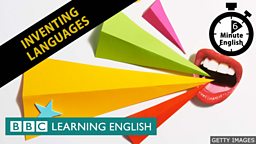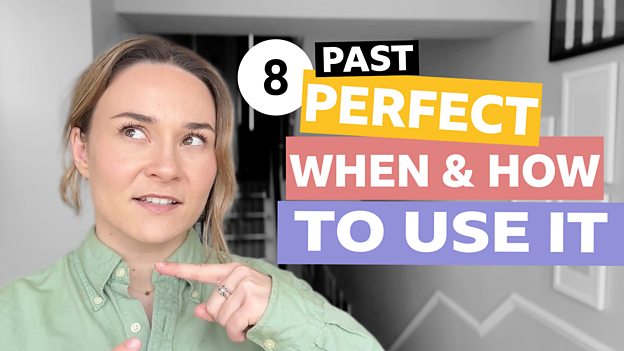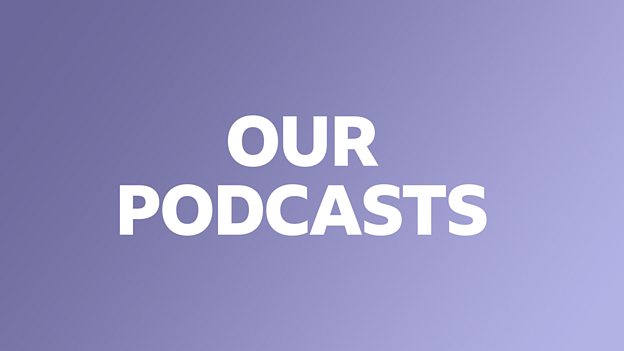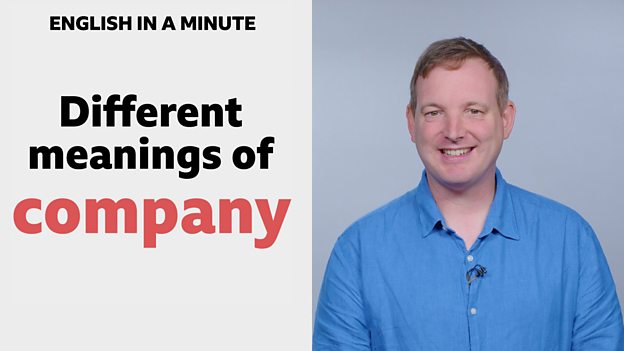6 Minute English
中级
Man vs beast: Who is more efficient?
Episode 220915 / 15 Sep 2022

Introduction
Humans are considered the superior species on Earth, but are our bodies as efficient as the bodies of other animals? Sam and Roy talk about this topic and teach you related vocabulary.
This week's question
Efficiency involves an input and an output. It‘s about the relationship between the amount of energy coming in – in other words, the food we eat - and the amount of the energy going out – the usual movements and activities of day-to-day life. So, according to this definition, which animal is the most efficient?
a) an ant
b) a whale
c) a human
Listen to the programme to find out the answer.
Vocabulary
crouched
bent at the knees, closer to the ground and leaning forward slightly
dogleg
having a bent shape, like a dog’s leg; a sharp bend in a road or path
optimal age
best age; age at which you are most likely to succeed in an activity
drops off
decreases in amount or quality
sweet spot
best possible combination of factors or circumstances
muscle mass
the amount of muscle in your body, as opposed to fat or bone
TRANSCRIPT
Note: This is not a word-for-word transcript.
Sam
Hello. This is 6 Minute English from BBC Learning English. I’m Sam.
Roy
And I’m Roy. Whether it’s salmon swimming upriver to lay their eggs or cheetahs running faster than a car, animals can do incredible things with their bodies.
Sam
Human bodies are no less incredible – just think of Olympic swimmers and sprinters.
Roy
Our bodies work using just the energy provided by what we eat. This means that the human body has to be incredibly efficient, using as little energy as possible to do what it needs to.
Sam
Yet even with our efficient bodies, no-one can run as fast a cheetah, not even Olympic champions! In this programme, we’ll be asking: exactly how efficient is the human body?
Roy
We’ll be comparing human bodies’ performance against each other, and against some animals too. And, of course, we’ll be learning some new and useful vocabulary as well.
Sam
But before that I have a question for you, Roy. Efficiency involves an input and an output. It‘s about the relationship between the amount of energy coming in – in other words, the food we eat - and the amount of the energy going out – the usual movements and activities of day-to-day life. So, according to this definition, which animal is the most efficient? Is it:
a) an ant?
b) a whale? or
c) a human?
Roy
Humans are the most efficient animal.
Sam
OK, Roy. I’ll reveal the answer later in the programme. To find out more about how the human body works it’s helpful to know how our species evolved. Here’s Herman Pontzer, professor of evolutionary anthropology at Duke University, speaking with BBC World Service programme, CrowdScience.
Prof Herman Pontzer
Humans are remarkably efficient. We walk on two very straight legs, if a human stands next to a dog, for example, the dog has got that funny bent classic dog leg shape, right? And that crouched posture is really typical of most animals. Humans have a very straight leg, and so because of that, and because our legs are pretty long for our body size – humans are part of the ape family – we’re are efficient.
Roy
Humans are apes and evolved from the same origin as gorillas and chimpanzees. One big difference however is that humans walk upright on straight legs, whereas most animals are crouched – bent over at the knee and leaning forwards to the ground. This crouched posture is not an efficient way to move.
Sam
Other animals, like dogs, have flat backs and move on four bent legs called doglegs – something bent in the shape of a dog’s leg. The word dogleg can also mean a sharp bend in a road or path.
Roy
So, the design of the human body makes it efficient compared to some other animals - but how do humans compare with each other? How do Kenyan athletes break long-distance running records, while many of us struggle to run for the bus? The main reason, according to Loughborough University physiologist, Rhona Pearce, is training. But there may be other factors too, as she explained to BBC World Service’s, CrowdScience.
Rhona Pearce
Age probably comes into it in that there’s probably an optimal age for tendon elasticity – that drops off as you get older, so probably there’s a sweet spot in age for running economy. So, in terms of weight, it depends what you weight is made up of, if you’ve got more muscle mass that’s going to help you, whereas if it’s more fat then you’ve got to carry it.
Sam
Efficient running depends on having flexible muscles and tendons, and this flexibility drops off, or decreases, as we get older. This means that, in terms of running, the body has an optimal age – the best age, or the age at which you are most likely to succeed.
Roy
Body composition also plays a part. Efficient runners need high muscle mass - the amount of muscle in your body, as opposed to fat or bone. So, training, age, muscle mass and genetics and are all factors which, when they come together, produce a sweet spot – the best possible combination of factors and circumstances. And from the evidence it looks like my answer to your question was right, Sam.
Sam
Ah yes, I asked which animal was the most efficient, and you said it was c) a human. Well, I’m sorry to say but that was the wrong answer! The funny thing is - and scientists still don’t understand why - but the bigger the animal, the less energy it uses, kilo for kilo. So, the most efficient animal…
Roy
…is also be the biggest – a whale! OK, let’s recap the vocabulary from the programme, starting with crouched – a position which is bent at the knee, leaning forward and closer to the ground.
Sam
A dogleg can describe something which has a bent shape, especially a sharp bend in a road or path.
Roy
The optimal age to do something is the best age to do it.
Sam
If something drops off, it decreases in quality or quantity.
Roy
A sweet spot is the best possible combination of factors or circumstances.
Sam
And finally, muscle mass is the amount of muscle in your body, as opposed to fat or bone. Once again our six minute are up. Bye for now!
Roy
Bye!
最新 6 Minute English
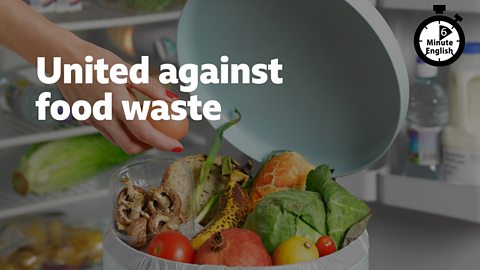
United against food waste
Episode 221229 / 16 Dec 2022
According to the UN, one third of the food we grow ends up in the rubbish bin - how can we stop this?
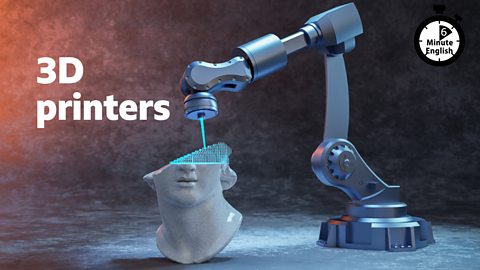
3D printers
Episode 221222 / 16 Dec 2022
How are 3D printers providing solutions to some of our medical problems?


Deep-sea mining: Good or bad for the planet?
Episode 221208 / 29 Nov 2022
Learn about an idea to deal with climate change that could affect marine ecosystems.

Can music mend a broken heart?
Episode 221201 / 24 Nov 2022
Is music really a cure for a broken heart?
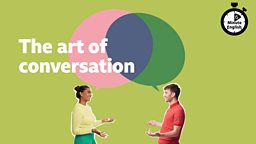
The art of conversation
Episode 221124 / 24 Nov 2022
We discuss whether the art of conversation is being lost in the era of social media

Qatar's World Cup workers
Episode 221117 / 17 Nov 2022
Hear about the workers who built the World Cup stadiums

Controlling the weather
Episode 221110 / 10 Nov 2022
How people are trying to manipulate the weather


Are Halloween costumes too scary?
Episode 221027 / 25 Oct 2022
We discuss whether Halloween costumes are now too scary to be fun.

Does climate change make you anxious?
Episode 221020 / 20 Oct 2022
We discuss how extreme weather events are affecting our mental health.

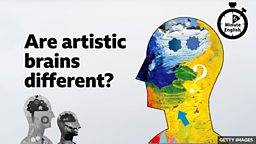
Are artistic brains different?
Episode 221006 / 06 Oct 2022
We talk about Mozart, Jimi Hendrix and teach you vocabulary.


English for dating online
Episode 220922 / 22 Sep 2022
We discuss the language used for online dating
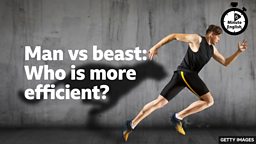
Man vs beast: Who is more efficient?
Episode 220915 / 15 Sep 2022
We discuss the advantages of the design of the human body

Are you following your dreams?
Episode 220908 / 08 Sep 2022
Hear the inspiring story of people who are doing it

Do emojis make language better?
Episode 220901 / 01 Sep 2022
Are emojis turning us into lazy writers?

Being a beauty influencer
Episode 220825 / 25 Aug 2022
Hear about women who are using social media to change attitudes to beauty

Women in the workplace
Episode 220818 / 18 Aug 2022
Hear about the career-killing tasks that are holding women back in the workplace


How pandemics end
Episode 220804 / 04 Aug 2022
We talk about previous periods in which deadly diseases went global

Confused by modern idioms?
Episode 220728 / 28 Jul 2022
Having a Groundhog Day? Keen to break the internet? Learn some modern idioms.
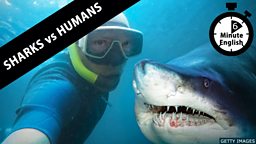
Which are more dangerous: sharks or humans?
Episode 220721 / 21 Jul 2022
How sharks have become an endangered species.
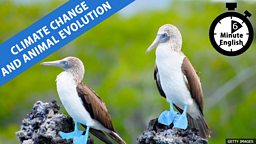
Climate change and animal evolution
Episode 220714 / 14 Jul 2022
Can today's animals evolve quickly enough to survive a changing climate?
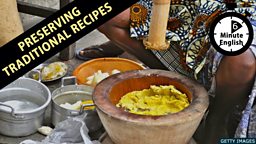
Preserving traditional recipes
Episode 220707 / 07 Jul 2022
Missing your mother's cooking? We talk about traditional dishes.
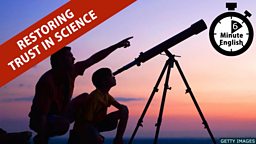
Restoring trust in science
Episode 220630 / 30 Jun 2022
Astronomer Neil deGrasse Tyson's quest to highlight the difference between opinion and fact

The Manhattan Project
Episode 220623 / 23 Jun 2022
In this episode, we discuss the events leading to the creation of the first atomic bomb.

Island life: Is it paradise?
Episode 220616 / 16 Jun 2022
What is life really like in the Pacific islands?

The technology of translation
Episode 220609 / 31 May 2022
What is the relationship between translation, technology and the human brain?

Queen Elizabeth II: What is the Platinum Jubilee?
Episode 220602 / 02 Jun 2022
We talk about a very British tradition


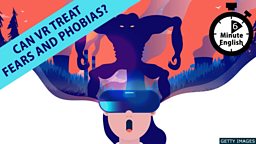
Can VR treat fears and phobias?
Episode 220512 / 12 May 2022
Hear how tech is helping people change their behaviour for the better

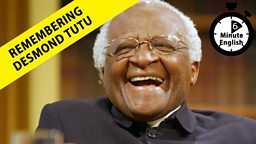
Remembering Desmond Tutu
Episode 220428 / 28 Apr 2022
Deep convictions and a sense of humour - we talk about a man who helped end apartheid in South Africa.
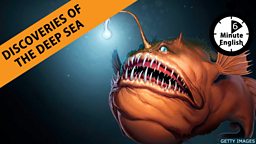
Discoveries of the Deep Sea
Episode 220421 / 21 Apr 2022
We talk about an extreme environment which is stranger than fiction
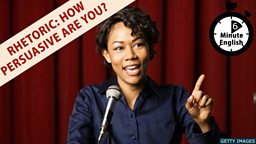
Rhetoric: How persuasive are you?
Episode 220414 / 14 Apr 2022
We talk about an art that started with ancient Greek philosophers

Britain's love affair with coffee
Episode 220407 / 07 Apr 2022
It's not all about tea. Britons love coffee too!
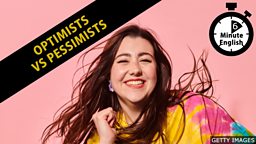
Optimists vs Pessimists
Episode 220331 / 11 Mar 2022
Listen to a conversation about optimists and pessimists

The world of Agatha Christie
Episode 220324 / 24 Mar 2022
Hear a chat about the queen of murder mystery, who had her books translated into over 100 languages
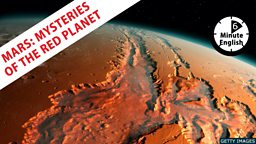

Why laughter is the best medicine
Episode 220310 / 10 Mar 2022
Shouldn't we take laughter more seriously?

Is being kind good for you?
Episode 220303 / 03 Mar 2022
Listen to what scientists are saying about the benefits of giving others a helping hand

Eating bugs
Episode 220224 / 24 Feb 2022
Would you eat a cricket? How about a portion of nice crunchy ants?


Do our pets care about us?
Episode 220210 / 10 Feb 2022
We wonder what all that licking is really all about

Sleepy in South Korea
Episode 220203 / 03 Feb 2022
Life in a place where people work, study longer hours and get less sleep than anywhere else

Preparing for the Beijing Winter Olympics
Episode 220127 / 27 Jan 2022
Artificial snow, coronavirus and controversy surround the Beijing Games starting soon.

Are personalised diets the best way to be healthy?
Episode 220120 / 20 Jan 2022
Learn how microbes help digest food and have an impact in our bodies.
